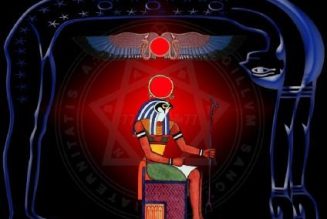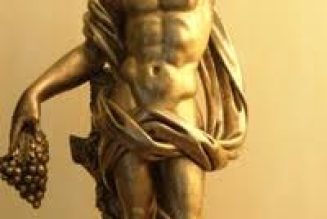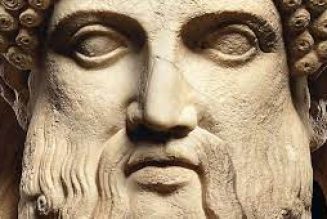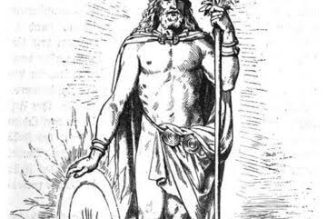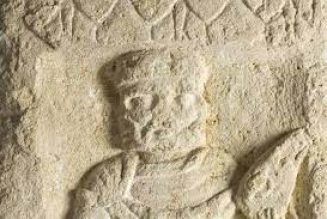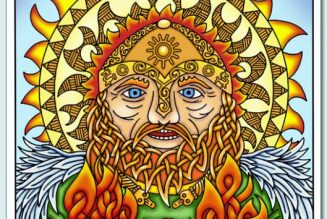
Young and lusty, the patron of doctors and occasionally the bringer of pestilential death, enlightened Apollo inspired prophecy, music, poetry, and the civilized arts, and was the ultimate embodiment of Greek self idealization.
The Apollo Belvedere, depicting the Greek god moments after loosing an arrow from his bow and slaying the python (or, alternatively, giant Tityos).
The Apollo Belvedere, depicting the Greek god moments after loosing an arrow from his bow and slaying the python (or, alternatively, giant Tityos).BELMONTE77 / CC BY-SA 4.0
One of the chief gods of the Greek pantheon, Apollo was the patron of music, poetry, and artistic inspiration. Possibly the most beloved of all the gods, Apollo was also the patron of oracles and the giver of prophetic gifts; he was celebrated as a bringer of order and reason, and as a healer and source of the medical arts. Apollo had his share of darker characteristics as well, as he was known to spread plague by loosing his arrows. He would also mete out harsh punishments to anyone who crossed him.
Apollo’s many functions were reflected in his many epithets: he was called “far-shooter,” “far-worker,” “rouser of armies,” and “Phoebus Apollo.” He was also described as paion (“helper”), epikourios (“assisting”), oulious (“healer”), loimios (“pestilential”), and alexikakos (“ill-deterring”).1
Apollo embodied the ideal of the Greek male youth. He was commonly depicted as a kouros, a statue of a young, beardless male that often carried a lyre or a bow and arrow. Worshiped in the Greek world and beyond, Apollo had dozens of temples and oracular shrines built in his honor—including the famous oracular shrine at Delphi. He was also memorialized in statues and songs known as paeans; while some have survived, others have lived on only in reputation.
Apollo
Young and lusty, the patron of doctors and occasionally the bringer of pestilential death, enlightened Apollo inspired prophecy, music, poetry, and the civilized arts, and was the ultimate embodiment of Greek self idealization.
Etymology
As with most Greek deities, the etymology of “Apollo” had mysterious origins. One theory has said the name derived from the early Greek noun apéllai, meaning “an assembly.” This interpretation would see the name “Apollo” translate to “he who assembles” or “he of the assembly,” possibly referring to his reputation as the bringer of civilized order and source of civil constitutions.
Another theory believed “Apollo” was derived from the words apeilḗ, a noun meaning “promise, boast or threat,” and apeiléō, a verb meaning “to make a promise, boast, or threat.” Such an etymology would render “Apollo,” in the words of one scholar, as “the god of authoritative speech, the one who presides over all manner of speech-acts, including the realms of songmaking in general and poetry in particular.”2
Family
Apollo was the child of Zeus and the Titan Leto, who delivered him and his twin sister under trying circumstances. Apollo took many lovers both female (among them Hecuba, wife of King Priam of Troy, Poseidon’s daughter Ourea, and all nine of the Muses!) and male (including the beautiful Adonis, the Spartan prince Hyacinth, and King Admetus of Pherae
With so many lovers, it is only natural that Apollo had many children. Among them were Asclepius—whom Apollo delivered with a caesarean, and who himself grew to be a physician with skills surpassing Apollo’s own—and Orpheus, the legendary musician and prophet. Apollo also fathered Delphos, Miletos, Tenes, Epidaurus, Ceos, Lycoras, Syrus, Pisus, Marathus, and Chaeron, all of whom went on to found eponymously named cities. Apollo sired several noted oracles, including Apis, Idmon, and Tenerus, among others.
